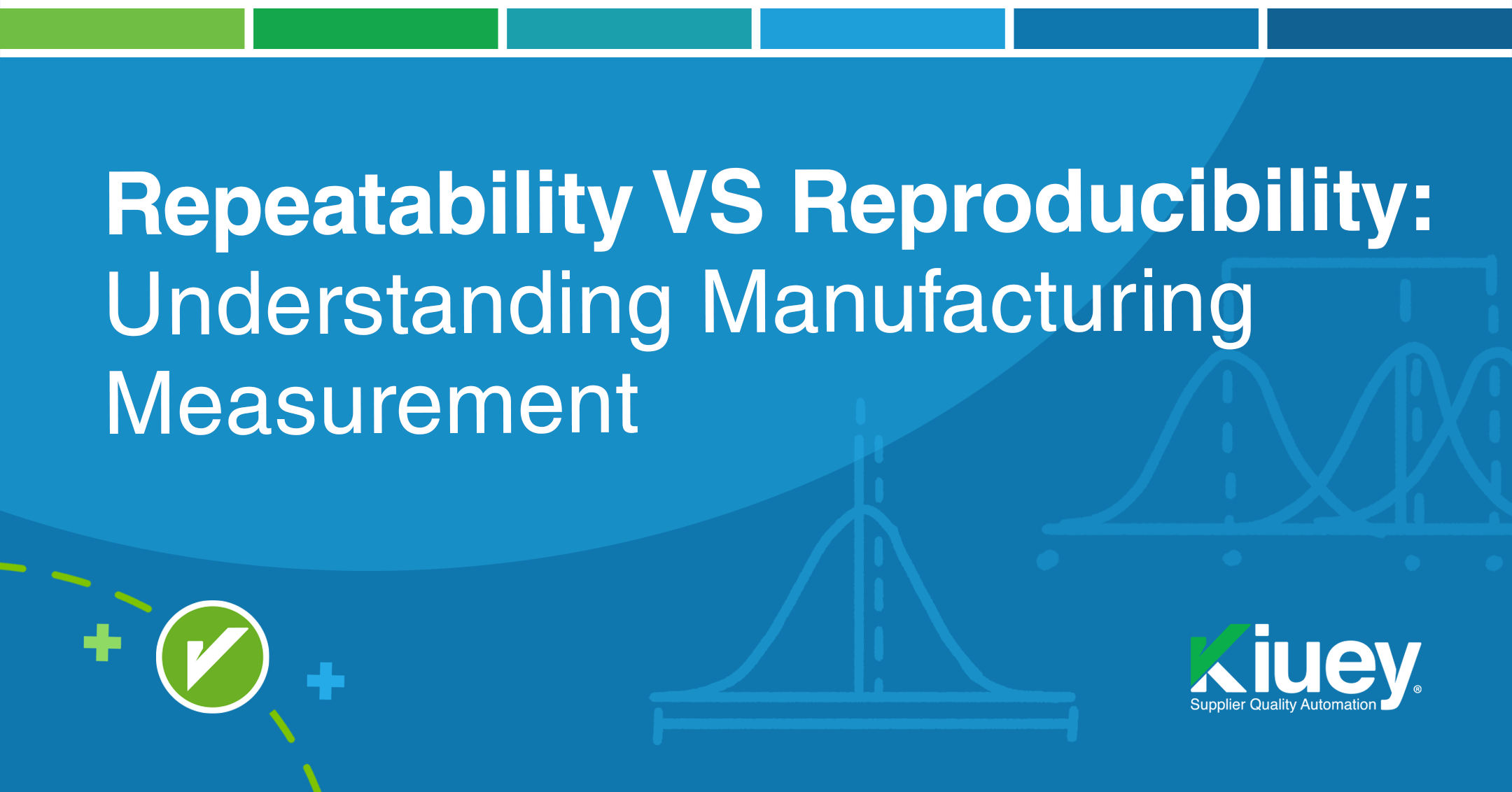
September 17, 2024
In the realm of manufacturing quality, repeatability and reproducibility are two critical concepts that every supplier quality engineer should grasp. These terms often get used interchangeably, but they represent distinct aspects of measurement accuracy and consistency.
Repeatability refers to the ability of a measurement process to produce consistent results when the same item is measured repeatedly under the same conditions. In essence, it’s about the precision of a single measurement.
Reproducibility, on the other hand, is the ability of a measurement process to produce consistent results when different operators, equipment, or conditions are used. It’s a measure of the overall reliability of the measurement process.
Why the distinction between repeatability and reproducibility is important?
- Identifying Measurement Errors: Understanding the difference between repeatability and reproducibility helps identify potential measurement errors. For instance, if a measurement process is repeatable but not reproducible, it may be due to operator-dependent factors.
- Ensuring Data Accuracy: Accurate data is essential for effective quality control and process improvement. By understanding these concepts, supplier quality engineers can ensure that the data they collect is reliable and can be used to make informed decisions.
- Improving Measurement Systems: If a measurement system is not both repeatable and reproducible, it may need to be revised or improved. This could involve training operators, calibrating equipment, or standardizing procedures.
Practical Examples
- Example 1: A supplier quality engineer is measuring the thickness of a metal sheet. If the same operator consistently measures the thickness within a narrow range, the measurement process is repeatable. However, if different operators obtain significantly different results, the process lacks reproducibility.
- Example 2: A supplier quality engineer is inspecting the color of a paint batch. If the same colorimeter consistently measures the color within a specific range, the process is repeatable. If different colorimeters produce different results, the process lacks reproducibility.
Key Considerations for Supplier Quality Engineers
- Measurement System Analysis (MSA): Conduct MSA to assess the repeatability and reproducibility of measurement systems.
- Operator Training: Ensure that operators are properly trained on measurement techniques and procedures.
- Equipment Calibration: Regularly calibrate measurement equipment to maintain accuracy.
- Standardized Procedures: Implement clear and standardized procedures for measurement.
- Environmental Control: Control environmental factors that can affect measurements (e.g., temperature, humidity).
By understanding the concepts of repeatability and reproducibility, supplier quality engineers can play a crucial role in ensuring the quality and consistency of products, reducing costs, and improving customer satisfaction.
Let's talk to see how PPAP Manager can help your company to save time and money.


